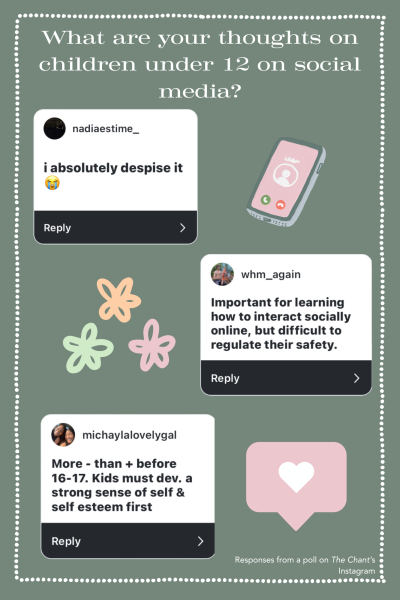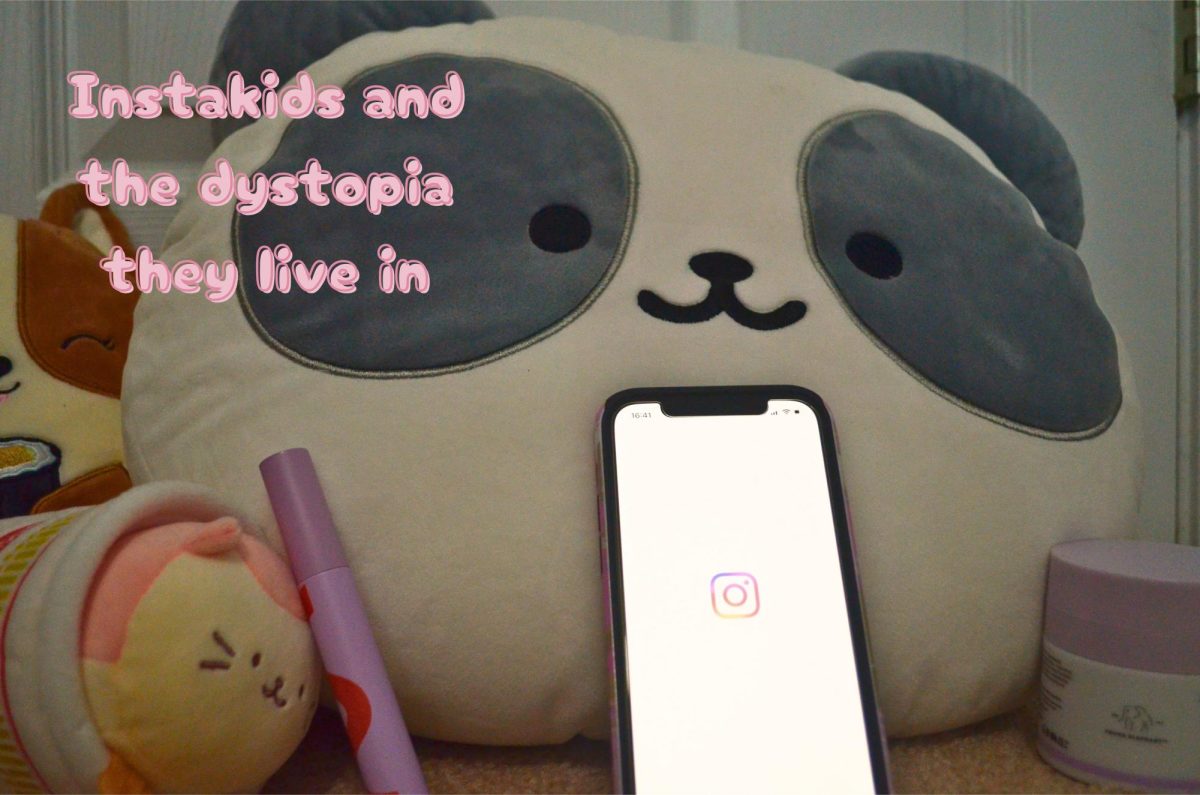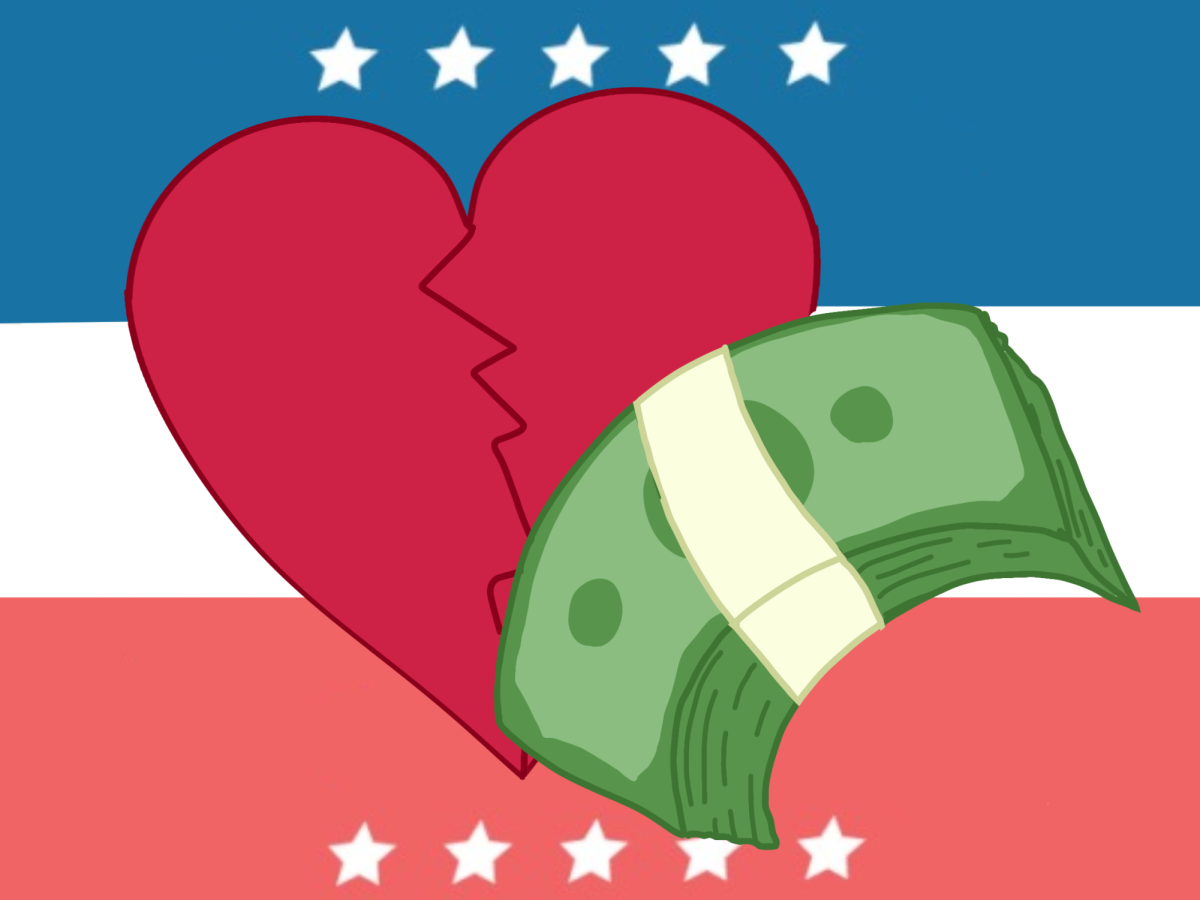Since the creation of Facebook in 2004, social media has established a way to connect with others and serve as a form of self-entertainment. Adults and teens scroll through apps such as Instagram, TikTok and Snapchat, keeping in touch with friends and following the lives of influencers, occasionally for hours each day. This dopamine-filled pastime has developed a reputation for creating addictive symptoms and harming self-confidence. Although adults can consume the media with comparatively little harm, children on these apps risk their safety. Kids participate in social media as members of family channels, young influencers and casual users, but in all these roles, children suffer major risks.
People who feel children belong on social media believe it allows kids to develop social skills and stay entertained. They point to the growing necessity of understanding these media platforms as children enter the adult world. Unfortunately, the behaviors juveniles learn on these apps can negatively affect their real lives. Online communication distracts from face-to-face connection, harming children’s social skills, and creating unrealistic expectations of the world.
“I certainly don’t think anyone under 13 should be using it. Unfettered access, without any screen controls or [parental] monitoring, should probably be delayed for as long as possible — certainly, until at least 16. The science suggests there’s more risk to adolescent brains than there is benefit to their social lives,” clinical psychologist Mitch Prinstein said.

Children and preteens’ activity on social media apps leaves them available to predators and risks them becoming desensitized to mature themes. Children given access to even comparatively low-risk social media apps such as YouTube Kids, may stumble upon videos of animated characters performing adult acts and other deceivingly explicit videos. This, however, only scratches the surface of how vile adults can harm kids on social media. Whether kids post on social media, or their parents choose to post them, certain comments sexualizing the child inevitably pop up. Further, ill-intentioned people may progress so far as to try to engage with the child in a private conversation or direct message, leaving them liable to harm.
Additionally, as young children roam on the internet, they may find themselves in digital spaces wrought with trends like body-checking and thinspiration, among other harmful beauty trends. This early exposure to media draws attention to physical appearance and may harm a child’s confidence as he or she will not likely share the appearance of adults with a particular genetic makeup or surgical operations. This also leads to the phenomenon of “Sephora kids”— the preteen girls that TikTok reports to seemingly take over Sephora, purchasing high-end makeup and skincare brands and ruining testers. These kids’ internet usage and participation in beauty trends remain unimpeded, leading to them using strong chemicals on their faces that may break down their skin barriers and cause skin health problems in the future.
“Yes, I’ve seen it happen to multiple people at school where social media has caused unsafe situations mainly pertaining to mental health. Social media has been the cause of extremist viewpoints, increased suicidal thoughts, bullying, and eating disorders which all target young demographics that are easily influenced. I think it’s worse for little kids to consume social media since again, younger kids are influenced so easily and don’t fact check so they will believe almost anything they see,” magnet sophomore Sophia Knighton said.
The internet currently appears as a Wild West as far as government regulation pertains to it. This extends to child labor laws. In other industries—including entertainment—the government has enacted laws to minimize the number of hours children can work and to require that parents set aside the appropriate amount of the child’s income for themselves. In contrast, posts that prominently feature young kids do not face the same amount of regulation. This means that accounts on these platforms, such as family channels, can commoditize these young children, forcing them to create content and leaving them to never see the fruits of their labor. Criticisms for this come as an onslaught at the moment, notably from comedian Caroline Easom’s satire series depicting the fictional and depressing lives of The Sandwich Family.
Social media presents itself as a mainstay in Western society as the internet becomes a necessity for human beings. The colorful form of entertainment of course reaches young communities, but it harms them significantly more than it helps them. As the next generation matures into adulthood, they come with the baggage that social media has left them with: body image issues, unpaid labor and trauma.










